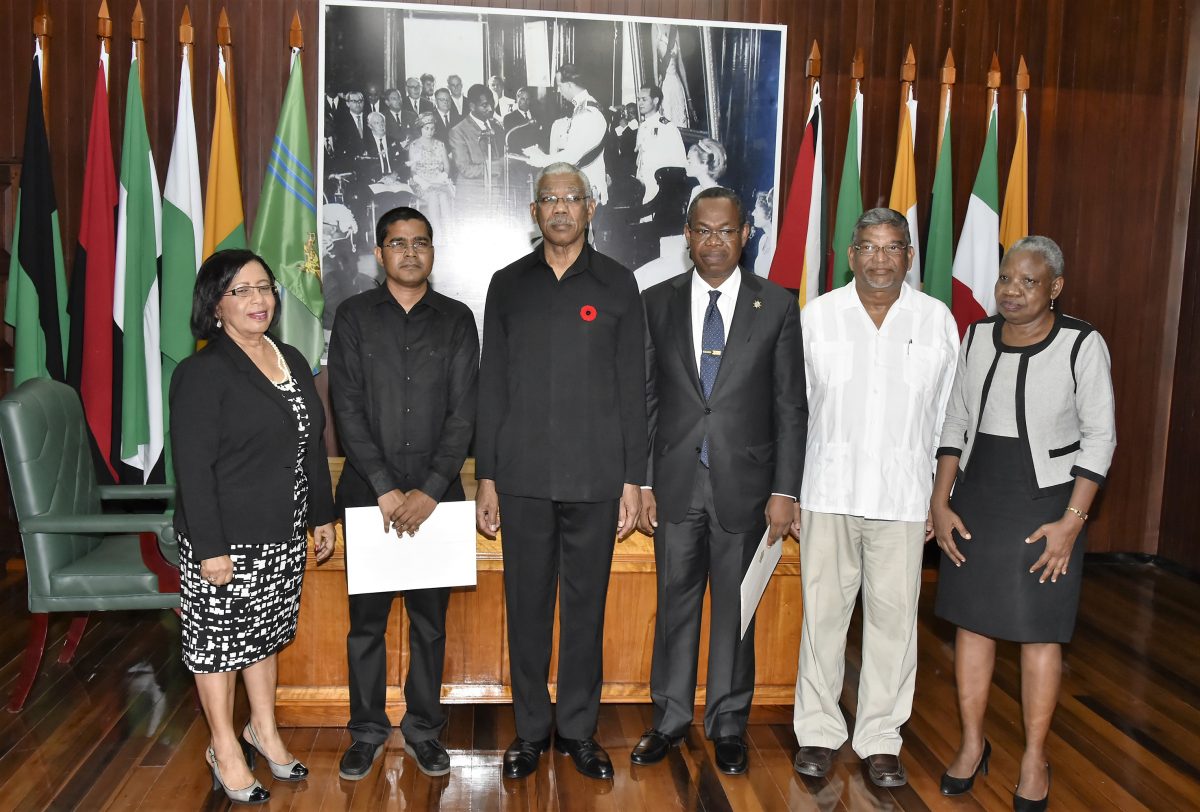The Public Accounts Committee (PAC) of the National Assembly is currently in the process of identifying new commissioners for the Public Procurement Commission (PPC).
“It was an item of discussion during our last PAC meeting and will be on the agenda for the next meeting,” PAC Chairman David Patterson told the Sunday Stabroek when contacted.
He explained that a number of processes and protocols will have to be completed, as is required by law for the identification, subsequent nomination and selection of the five-member body.
As such, Patterson said that he could not give a timeframe for when the process would be completed. “I can’t say when because several organisations will have to be sought out and then recommendations made to take to the PAC and then the National Assembly and all of that,” he said. “At the next meeting [of the PAC] we would discuss all of that,” he added.
The life of the commission came to an end last October.
In October 2016, and more than 13 years after Guyana’s Constitution was amended to provide for the PPC, the procurement oversight body was established.
The Constitution provides that, “Subject to paragraph (2), members of the Commission shall be appointed for three years and shall be eligible for re-appointment, for one other term of office, not earlier than three years after the end of their first term. (2) Of those members first appointed, two shall hold office for four years.”
It is the President who appoints the commissioners after the process of selection and approval by the National Assembly.
Following the establishment of the PPC, its commissioners were sworn in and began work from its Queenstown, Georgetown office. Taking the oath of office were Carol Corbin, Emily Dodson, Sukrishnalall Pasha, Ivor English and former Minister of Labour Nanda Kishore Gopaul.
The five would later choose Corbin, a former project management professional and accountant who has decades of experience working at the CARICOM Secretariat, as the Chairperson of the commission and in November 2016, they began operating.
The life of that body came to an end in October 2019 and after intervention by then President David Granger, the tenures of Corbin and Gopaul were extended for one year to allow for a transition.
Another body could not be established because there was no parliament for most of last year due to the elections impasse.
It is unclear what transitioning process will be allowed for when the National Assembly chooses the next five commissioners.
Among the PPC’s key functions, according to the Procurement Act, are to: “Monitor and review the functioning of all procurement systems to ensure that they are in accordance with law and such policy guidelines as may be determined by the National Assembly; promote awareness of the rules, procedures and special requirements of the procurement process among suppliers, constructors and public bodies; safeguard the national interest in public procurement matters, having due regard to any international obligations; monitor the performance of procurement bodies with respect to adherence to regulations and efficiency in procuring goods and services and execution of works; approve of procedures for public procurement, disseminate rules and procedures for public procurement and recommend modifications thereto to the public procurement entities.”
It will also “monitor and review all legislation, policies and measures for compliance with the objects and matters under its purview and report the need for any legislation to the National Assembly; monitor and review the procurement procedures of the ministerial, regional, and national procurement entities as well as those of project execution units; investigate complaints from suppliers, contractors and public entities and propose remedial action; investigate cases of irregularity and mismanagement, and propose remedial action; initiate investigations to facilitate the effective functioning of public procurement systems.”
The PPC can enlist the aid of experts to assist with specialist advice as needed, and will also liaise with and refer matters to the police and the Auditor General and do all other acts as may be necessary to facilitate the efficient discharge of its functions.
Following the Auditor General’s most recent report, presented to the National Assembly on December 10th, former Auditor General Anand Goolsarran had called for the swift operations of the PAC, which he said has “urgent tasks ahead of them”.
“As regards the work of the PAC, its last report was in respect of the years 2012-2014. The PAC is therefore five years in arrears in terms of examination and reporting on the public accounts. In addition, the PAC is responsible for recommending to the Assembly the names of five persons to serve on the PPC. Regrettably, the PPC has been without the services of the Chair and Vice-Chair since their tenure of office expired in October 2020. The other three members demitted office a year earlier in accordance with their terms and conditions of service,” he said, urging the Authorities to activate the body “so that the work of the Legislature can commence urgently and in a meaningful way.”





